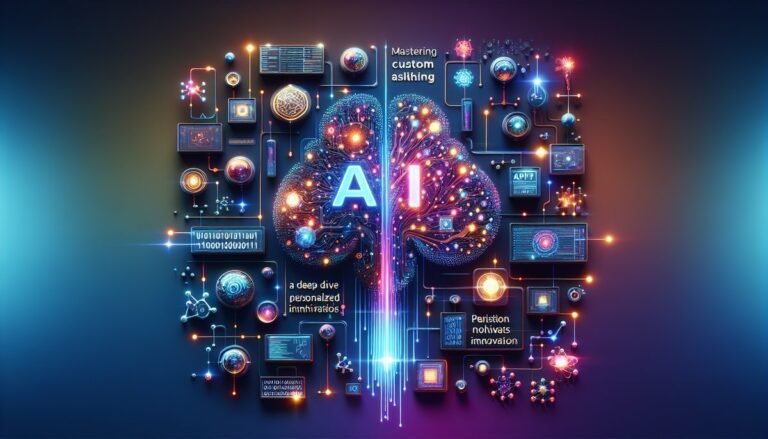In the rapidly evolving landscape of Artificial Intelligence, the rivalry between tech giants has taken center stage. The narrative of OpenAI vs Google is one that has captured the imagination of industry insiders and casual observers alike. Founded with a mission to ensure that Artificial General Intelligence (AGI) benefits all of humanity, OpenAI was envisioned as a counterbalance to the growing influence of Google’s AI arm, DeepMind. As the story unfolds, questions arise about whether Elon Musk and Sam Altman, two pivotal figures in OpenAI’s origin, strategically positioned the company to challenge and potentially derail DeepMind’s ambitions to steer the direction of AGI development.
Elon Musk’s Vision: A New Player in the AI Arena
Elon Musk, known for his futuristic vision and ventures that push technological boundaries, has always been an outspoken critic of unchecked AI development. His involvement in OpenAI signaled a deliberate move to create a formidable entity capable of rivaling Google’s expansive AI efforts. Unlike Google’s commercial focus, Musk’s approach was rooted in the philosophy of broad accessibility and ethical oversight, aiming to democratize AI advancements. As a result, OpenAI emerged not just as a competitor, but as a philosophical counter to DeepMind’s objectives. This dynamic set the stage for an intriguing clash of ideologies and strategies.
Sam Altman: Architect of OpenAI’s Strategic Path
Sam Altman, another central figure in the OpenAI narrative, brought his keen strategic acumen to the fore. As the former president of Y Combinator, Altman was no stranger to the startup ecosystem and understood the importance of positioning OpenAI as a challenger to established giants like Google. Under his leadership, OpenAI pursued a unique path focused on transparency and collaboration, contrasting with DeepMind’s more insular approach. This strategic positioning not only fueled the OpenAI vs Google rivalry but also highlighted the differing priorities and methodologies of the two organizations.
DeepMind’s Ambitions: A Singular Vision for AGI
DeepMind, acquired by Google in 2015, has long been at the forefront of AI research, with ambitious goals to develop AGI that could solve complex problems across various domains. Known for its breakthroughs in machine learning and neural networks, DeepMind’s approach has often been characterized by a focus on achieving technical excellence and pushing the boundaries of what AI can accomplish. However, this has raised concerns about the concentration of power and decision-making capabilities within a single corporate entity.
The emergence of OpenAI as a countervailing force brought a new dimension to the conversation about AI governance and the ethical implications of AGI. By positioning itself as a check against DeepMind’s ambitions, OpenAI has sparked a broader discussion about the responsibilities of tech companies in shaping the future of intelligence. The OpenAI vs Google narrative is thus not just a tale of corporate competition but a reflection of the broader societal questions surrounding the development and deployment of advanced AI technologies.
The Future: A Battle of Ideals and Innovations
As the competition between OpenAI and Google intensifies, the stakes are higher than ever. At its core, this rivalry is a battle of ideals, with each entity striving to define the future of AI in its own image. The ongoing developments in AI capabilities, coupled with the divergent philosophies of these two giants, are likely to shape the trajectory of technological progress for years to come. As we continue to witness this unfolding saga, the implications for innovation, ethics, and global impact remain profound and far-reaching.
Origins of OpenAI: A Vision of Balance and Innovation
The inception of OpenAI was rooted in a mission to act as a countervailing force to the dominance of Google’s AI initiatives. At its core, OpenAI was envisioned by its founders, including Elon Musk and Sam Altman, as a non-profit dedicated to ensuring that the development of Artificial General Intelligence (AGI) would benefit humanity broadly, rather than being controlled by a single entity. This ambition was not just about creating cutting-edge technology but also about fostering a landscape where multiple players could contribute to the advancement of AI without a single corporation dictating the terms.
Defining the Contenders: OpenAI vs Google
In the contest between OpenAI and Google, the narrative is not merely about technological prowess but also philosophical differences. Google’s DeepMind, a subsidiary known for its remarkable achievements like mastering the game of Go, has always aspired to lead in the development of AGI. However, critics argue that its close ties to a corporate parent could potentially limit the openness and ethical considerations necessary for such a powerful technology. This concern is what OpenAI sought to counteract, promoting transparency and safety in AI research.
By positioning itself as an alternative to Google’s DeepMind, OpenAI aimed to democratize the AI landscape. It raised significant funding and attracted top talent, developing technologies like the GPT series that have set benchmarks in natural language processing. This competition encouraged a more diversified and innovative approach to AI, pushing the boundaries of what these technologies could achieve.
Elon Musk and Sam Altman’s Role: Strategy and Influence
Elon Musk and Sam Altman played pivotal roles in shaping OpenAI’s trajectory. Musk’s involvement was driven by his well-documented concerns about the existential risks posed by superintelligent AI. His influence helped steer OpenAI towards a path that emphasized safety and ethical considerations, challenging the notion that corporate interests alone should dictate the course of AI development.
Sam Altman, on the other hand, brought his entrepreneurial acumen and vision for a collaborative AI community. Under his leadership, OpenAI transitioned from a non-profit to a “capped-profit” entity, balancing financial incentives with its broader mission. This shift was seen by some as a pragmatic move to secure the resources needed to compete against giants like Google without abandoning its foundational goals.
Hypothetical Scenarios: What If Google Dictated AGI?
Imagining a world where Google had an uncontested lead in AGI development paints a picture of potential ethical and operational challenges. In such a scenario, DeepMind’s innovations could have been tightly integrated into Google’s vast ecosystem, possibly prioritizing corporate objectives over broader societal benefits. Concerns about privacy, data security, and the monopolization of AI tools would likely become more pronounced, raising questions about who truly benefits from AI advancements.
In contrast, OpenAI’s presence has spurred a more competitive and ethically conscious environment. By challenging Google’s approach, OpenAI has not only driven innovation but also underscored the importance of diverse perspectives in the tech industry. The competitive pressure ensures that AI tools are developed with a focus on public good, fostering a more balanced distribution of benefits across society.
The Broader Impact: Shaping AI’s Future
The rivalry encapsulated in the ‘OpenAI vs Google’ narrative has had far-reaching implications beyond the companies themselves. It has influenced policy discussions, prompted investments in AI ethics, and inspired a broader dialogue about the role of AI in society. By challenging Google’s potential dominance, OpenAI has highlighted the significance of maintaining a competitive landscape where diverse entities can contribute to and influence the future of AI.
This ongoing tension between OpenAI and Google also serves as a crucial reminder of the need for robust regulatory frameworks. Policymakers and industry experts are increasingly aware that while competition can drive progress, it also necessitates oversight to ensure that advancements align with public interest and ethical standards.
Concluding Thoughts: A Balanced Future
As OpenAI continues to evolve, its initial mission to act as a countervailing force remains relevant. The company’s journey, fueled by the vision of its founders, has not only challenged Google’s dominance but also set a precedent for how AI development can be approached with a balance of innovation, ethics, and inclusivity. This narrative underscores the importance of diverse voices and collaborative efforts in shaping a future where AI benefits all of humanity.
Shaping the Future: OpenAI’s Role in the AI Landscape
OpenAI’s inception as a “countervailing force” to Google’s DeepMind highlights a pivotal moment in the Artificial Intelligence sector. Elon Musk and Sam Altman’s strategic vision aimed to democratize AI development, preventing any single entity from monopolizing Artificial General Intelligence (AGI). This bold move has fostered a more competitive environment, encouraging innovation and ethical considerations across the industry.
Looking forward, the implications of this rivalry extend far beyond conventional tech boundaries. As AI continues to evolve, opportunities will arise in unexpected areas, necessitating cross-disciplinary collaboration and novel applications. OpenAI’s commitment to open-source initiatives and ethical AI practices will likely inspire further advancements, ensuring that the pursuit of AGI remains a collective endeavor.
Did OpenAI’s founding impact DeepMind’s approach to AGI?
OpenAI’s establishment introduced significant competition, prompting DeepMind to adopt more transparent practices and emphasize ethical AI development, reshaping its approach to AGI.
What was Elon Musk’s role in OpenAI’s formation?
Elon Musk co-founded OpenAI with the intent to create a collaborative environment for AI research, counterbalancing Google’s influence and ensuring AGI development remains beneficial to humanity.
How does OpenAI’s mission differ from Google’s DeepMind?
OpenAI focuses on transparency and wide accessibility in AI advancements, contrasting with DeepMind’s more closed, corporate-driven approach, with both aiming to safely achieve AGI.
What are the potential consequences of this AI rivalry?
The competition between OpenAI and DeepMind is likely to accelerate technological progress, diversify AI applications, and enhance regulatory frameworks, benefiting the broader AI ecosystem.
Discover More AI Innovations and Insights
- Ai Content Generators 2025
- Zoom Ai Companion Guide 2025
- Iit Delhi Data Science Certification
- Android Vs Ipad Car Tablets
- Best Ai Text Generators 2025






